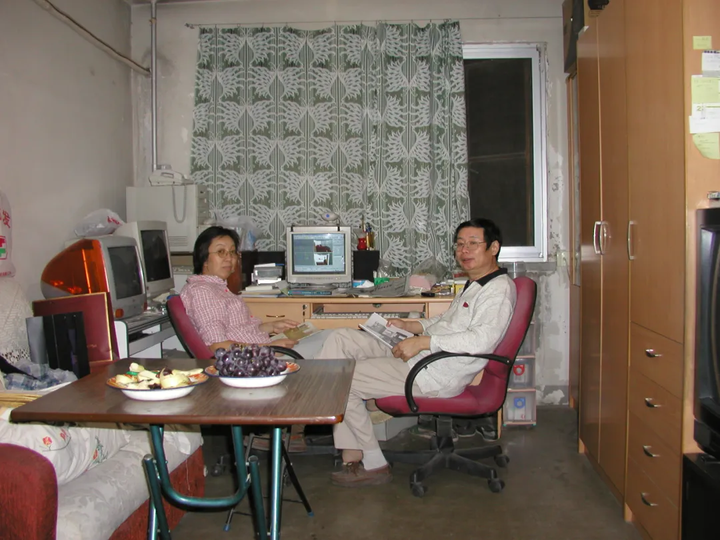Escaping Tradition: She Cut All Ties with Her Chinese Family to Start Over in New Zealand

Staff Writer: Yiyi Xie
Image Source: Supplied
In recent years, the term "anti-filial piety" has sparked widespread discussion across Chinese social media. Many have shared stories of reconciling with—or cutting ties from—their families. At its core, this movement redefines the parent-child relationship, stripping away traditional expectations. It doesn’t imply rebellion but rather challenges Confucian ideals of rigid family hierarchy. Only by shaking off the societal pressure of filial duty can parents and children learn to love—or not love—each other in a healthier way.
Lanxin, the protagonist of our story today, is one of many who have embarked on this journey of self-discovery.

In October 2022, Lanxin arrived in New Zealand on a Working Holiday Visa, eager to explore the country. The price? Cutting all ties with her family, both emotionally and legally.
My Rebellion Branded as Unforgivable
Born in 1995 in Jiaxing, Zhejiang, Lanxin grew up in what seemed like an ordinary family with a younger brother, two years her junior.

From a young age, Lanxin had a curiosity about the world. By her mid-teens, she craved independence and sought the meaning of life outside her small bubble. To her parents, this was rebellion. They were disappointed to realize she wasn’t the obedient daughter they had expected.
One day, her mother revealed a long-buried secret that shattered her world: Lanxin was not their biological daughter. She was actually the second daughter of her aunt and uncle, who had hoped for a son. When Lanxin’s biological mother became pregnant with their third child, they sent her to live with her now adopive parents, promising to come back for her. They never did. The third child was also a girl, and her biological parents decided to leave Lanxin with her aunt and uncle, who formally adopted her.
When the truth came out, it was as if a weight was lifted from her mother, but that burden fell squarely on Lanxin’s shoulders. While her mother presented her as a biological daughter to the outside world, at home, Lanxin felt like a stranger. From that moment on, it was clear her mother no longer had any real expectations for her.
"Raising You Was a Waste of Time"
In 2018, Lanxin graduated from college, saved up 20,000 yuan from part-time jobs, and applied for an au pair program in the U.S. But her family, who had opposed her decision to travel to Vietnam during college, met her plan with fierce resistance. They accused her of being selfish and bringing shame to the family. Why couldn’t she just settle down, get a job, and marry like the other girls?
This time, Lanxin didn’t give in. She wasn’t asking them for money, after all. Eventually, her family realized she was different, and there was no changing that.
Lanxin spent nearly two years in the U.S., learning about the world’s varied attitudes toward sons and daughters, parenting, and family expectations. It was during this time that she began to reflect on her own upbringing and embarked on her journey of "anti-filial piety."

In 2020, she returned to China due to the pandemic. She found a job and rented an apartment in Jiaxing but occasionally went back home, where she was expected to do housework while her brother, only two years younger, did nothing. When she questioned this, her mother responded, "Don’t compare yourself to your brother. I’ll need him someday." In moments of anger, her mother would even say, "Raising you was a waste of time. I should’ve raised a dog instead."
By then, it was clear to Lanxin that her parents favored her brother. Despite her efforts to deny it, she couldn’t ignore the reality anymore.
"This Is No Longer Your Home"
Lanxin’s breaking point came when she realized her brother had been given everything unconditionally—houses, cars, opportunities—while she was left out. Her father once promised her, "When you get married, I’ll buy you a house and a car." But why did her brother receive everything without any conditions?
Angry and hurt, she packed her things and left. Her mother’s parting words: "Don’t come back!"
For the next two years, Lanxin stayed away. Relatives tried to convince her to apologize, but her pride and sense of justice wouldn’t allow it. She was glad to have cut ties with such a toxic environment, and for the first time, she relished her newfound freedom.
But deep down, she hoped her family would reach out, that they might still care. Yet, just as her biological parents never returned for her, her adoptive parents made no attempt to reconnect.
During this time, Lanxin threw herself into books about women’s empowerment and personal growth, determined to break free from the emotional scars of her upbringing. Slowly, she grew stronger.
In 2022, Lanxin decided to apply for a Working Holiday Visa to New Zealand. She reached out to her family for the necessary documents, but no one responded to her calls. Eventually, her mother answered the phone with a cold, unfamiliar voice, "Hello, who’s this?" She had deleted Lanxin’s number. The moment she realized it was Lanxin, she hung up and blocked her.
When Lanxin finally sought help from her biological parents, it led to a heated argument and physical altercation. But this time, she fought back. "You abandoned me and now call me ungrateful, a lunatic? Fine! I am ungrateful. I am a lunatic!"
Freedom Comes at a Price
In the end, her family agreed to provide the documents—but only if she legally dissolved the adoption and removed her name from the family registry. Lanxin agreed.
The day she received the court summons, she cried for hours. It was a formal end to her relationship with the people who had raised her. After the hearing, she and her parents finally had a calm conversation. They wished her well, and she sincerely thanked them for raising her. It was the first time they had spoken without anger, but it would also be the last.
Building Her Own Life
In October 2022, Lanxin arrived in New Zealand, where the beauty of the land began to heal her. She worked as a helper, traded chores for accommodations with a German couple, and spent her free time hiking, reading, and enjoying the simple pleasures of life.

For the first time in her life, Lanxin felt free. She shaved her head, embracing the breeze on her scalp, and found strength in her newfound independence. Along the way, she met women from all walks of life, each on their own journey, each finding their own power.

Through her experiences, Lanxin discovered that life could be full of possibility, even for those who had been abandoned or overlooked. She no longer needed to seek approval from anyone but herself.

Now, she plans to travel to Australia, continue exploring the world, and eventually dedicate her time to advocating for women’s and children’s rights. The road ahead is full of potential, and she’s ready to embrace it.
In July, as winter approached the Southern Hemisphere, Lanxin boarded a plane bound for Southeast Asia. With stops in Kuala Lumpur, Penang, Phnom Penh, and Bangkok, her 35-day itinerary was packed. She joked about it being a “special hectic trip.”
She’s been to many places over the years, but she’s never felt as free as she does now.



